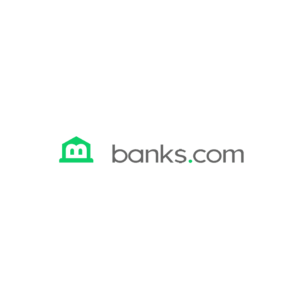A cash-out refinance basically converts the equity you’ve built up in your home into cash. The loan proceeds can be used to consolidate high-interest debt, make much-needed home improvements, meet other financial goals, or do whatever else you see fit.
But is it the right option for you? While a cash-out refinance could be suitable for many reasons, there are also cons to consider. Here’s a breakdown of how this mortgage product works and the advantages and disadvantages you’ll need to assess to make an informed decision.
How Does a Cash-Out Refinance Work?
To demonstrate how cash-out refinancing works, assume your home is valued at $450,000, you owe $275,000 on the mortgage, and the lender has agreed to let you borrow 80 percent of your home’s value.
At closing (or shortly after closing), you’ll get $85,000 in cash ($450,000 * .80 – $275,000). Your current mortgage with a balance of $275,000 will be replaced with a new mortgage for $360,000 ($275,000 + $85,000).
Who Is Eligible For A Cash-Out Refinance?
Not all cash-out refinance lenders are the same, so the qualification criteria could vary. However, here are some general eligibility criteria to keep in mind:
Home Equity
Most lenders require you to have at least 20 percent of equity built up in your home to qualify for a cash-out refinance.
Credit History
It would help if you had a credit score of at least 620 before you apply. However, a higher score means you’ll typically qualify for more competitive interest rates.
Debt-To-Income Ratio
A reasonable debt-to-income (DTI) ratio that doesn’t exceed 50 percent is typically required. Some lenders could require borrowers to have a lower DTI, but the criteria could be more flexible if you have a higher credit score.
Seasoning
If you have a conventional loan, you must own the home for at least six months before applying for a cash-out refinance (unless it was inherited or awarded to you through the courts). The same rule applies to homeowners with VA loans; the waiting period increases to 12 months for FHA loans.
Ultimately, there are many perks to cash-out refinances. You can pull cash out of your home, lower your payments and consolidate debt with a home refinance.
Pros of a Cash-Out Refinance
Cash-out refinances offer many perks to homeowners.
Access To Large Amount of Cash
One of the primary benefits of a cash-out refinance is the ability to access a large sum of money in one go. This can be particularly useful for covering significant expenses that would otherwise require saving for an extended period or taking out a high-interest loan. With a cash-out refinance, you can tap into the equity you’ve built up in your home to get the funds you need now.
Flexibility
Cash-out refinancing offers flexibility in how you can use the funds. Whether it’s for a child’s education, investing in a business, or any other personal use, having the freedom to use the cash as you see fit can be a significant advantage. This flexibility allows you to make decisions that best suit your financial situation and personal goals.
May Get Lower Interest Rate
Since you’ll swap out your current mortgage with a new one, you could get a lower interest rate and save several hundred or thousands of dollars in interest over the loan term. It depends on how much cash you pull out, though.
Consolidate Higher Rate Loans Into One
You could use the loan proceeds to streamline the repayment process so you won’t have to pay several creditors each month. Furthermore, you could save a sizable amount in interest than you would have if you only made the required minimum monthly payments.
Free Up Cash For Major Improvements
Home improvements can place a dent in your wallet. Or you could spend months or even years saving up the funds needed to cover the costs. But by tapping into your home’s equity through a cash-out refinance, you’ll immediately have the cash required to pay for expenses and labor.
May Improve Credit Score
Credit utilization on revolving debt, or credit cards, accounts for 30 percent of your FICO score – the lower, the better. If you use a cash-out refinance to consolidate credit card debt, your utilization rate may plummet, and your credit score may likely increase.
Potential Tax Deductions
If you use the cash from your refinance to make substantial improvements to your home, you may be eligible for tax deductions on the interest paid. The IRS allows homeowners to deduct mortgage interest paid on the first $750,000 of indebtedness ($375,000 if married filing separately) for loans used to buy, build, or substantially improve the taxpayer’s home that secures the loan.
Cons Of a Cash-Out Refinance
Unfortunately, there are also drawbacks of cash-out refinances to be aware of.
May Pay More Interest Long-Term
You’ll reset the loan term with a cash-out refinance. If you’ve held your current mortgage for many years, this could result in you paying more interest over the life of the loan, as the lender will have more time to collect from you.
Closing Costs and Fees
On a cash-out refinance, you’ll pay closing costs, between 2 and 5 percent of the loan amount. Using the previous example, your closing costs will be between $7,200 and $18,000 since the new loan amount is $360,000.
Private Mortgage Insurance Cost
If the lender lets you borrow up to 90 percent of your home’s equity, you could be on the hook for private mortgage insurance. However, in most instances, it will fall off once you reach 80 percent equity.
Tax Implications
Generally, you can write off any interest paid on your cash-out refinance loan if the funds are used to cover the costs of home improvements. However, you won’t have this perk if the funds are used for other purposes.
Longer Payoff Timeline
As previously mentioned, opting for a cash-out refinance can extend the period over which you pay off your home loan. If you choose a new loan with a term that is longer than the remaining term on your existing mortgage, you could be making mortgage payments for several more years than initially planned. This means you’ll be in debt longer, which could delay your financial goals, such as retirement or starting a new business.
Risk of Foreclosure
With a cash-out refinance, you’re borrowing against the equity in your home. Doing so increases your mortgage debt, and the risk of foreclosure increases if you cannot make the new, potentially higher mortgage payments. The loan uses your home as collateral, so falling behind on the monthly mortgage payments means you could lose your home.
Potential for Reduced Equity
Less equity can be a disadvantage if home values decline— you could end up owing more than your home is worth, a situation known as being “underwater” on your mortgage. Having less equity also means you’ll have less money from the sale of your house if you decide to move. And it can impact your ability to make a down payment on a new home or fund other future financial needs.
What Can You Use a Cash-Out Refinance For?
You’re free to use the loan proceeds however you please. However, homeowners commonly leverage home equity to consolidate costly debt, make home improvements or repairs, cover higher education costs, or pay for emergency expenses when life happens.
Debt Consolidation
You can use a cash-out refinance to consolidate debt, which allows homeowners to pay off high-interest credit cards, personal loans and other debts with higher interest rates. By consolidating these debts into a mortgage with a lower interest rate, borrowers can potentially save money on interest and streamline the repayment process.
Home Improvements
Homeowners often use funds from a cash-out refinance for home improvements. Certain renovations can increase the value of the home and can be a wise investment. It’s also an opportunity to make necessary repairs or upgrades to enhance your home’s livability and overall quality of life.
Tuition and Education
Cash-out refinancing can also provide funds for tuition and other higher education costs. The interest rates for a mortgage can be lower than private student loans, possibly saving you money over time.
Emergency Expenses
When life happens, a cash-out refinance can offer a lifeline by providing funding to cover emergency expenses, like medical bills or significant repairs. As a homeowner, you can have peace of mind, knowing you have access to funds when you need them the most.
Is a Cash-Out Refinance Right for You?
Whether a cash-out refinance is right depends on several factors, including your financial goals, current interest rates, your home equity, and your overall financial situation.
It can be a sound strategy if you have substantial home equity, can secure a lower interest rate than your current mortgage, and have a clear plan for using the funds to improve your financial position. Your strategy could include debt consolidation, home improvements or other investments that can help enhance your financial well-being.
Still, there are downsides to consider. A cash-out refinance means a bigger mortgage that can cost you a fortune in interest, especially if you extend the loan term. It also comes with closing costs and could put you at risk of foreclosure if you can’t keep up with the new payments. You should evaluate your ability to handle the increased debt and whether the long-term benefits outweigh the immediate costs and risks.
Before applying for a cash-out refinance, speaking with a mortgage professional or licensed financial advisor is wise. They can evaluate your finances and educate and advise you on other options that may be a better fit.







